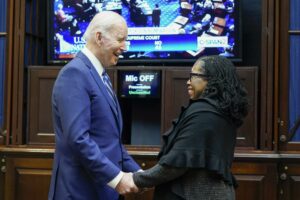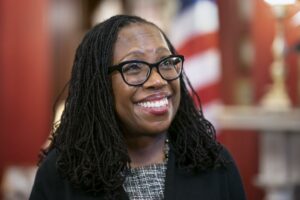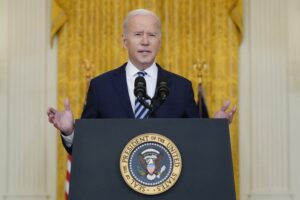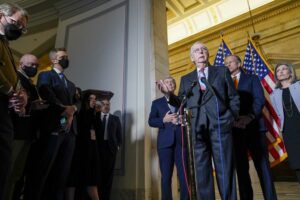
Musk’s Twitter Ambitions To Collide With Europe’s Tech Rules
A hands-off approach to moderating content at Elon Musk’s Twitter could clash with ambitious new laws in Europe meant to protect users from disinformation, hate speech and other harmful material. Musk, who describes himself as a “free speech absolutist,” pledged to buy Twitter for $44 billion this week, with European Union officials and digital campaigners quick to say that any focus on free speech to the detriment of online safety would not fly after the 27-nation bloc solidified its status as a global leader in the effort to rein in the power of tech giants. “If his approach will be ‘just stop moderating it,’ he will likely find himself in a lot of legal trouble in the EU,” said Jan Penfrat, senior policy adviser at digital rights group EDRi. Musk will soon be confronted with Europe’s Digital Services Act, which will require big tech companies like Twitter, Google and Facebook parent Meta to police their platforms more strictly or face billions in fines. Officials agreed just days ago on the landmark legislation, expected to take effect by 2024. It’s unclear how soon it could spark a similar crackdown elsewhere, with U.S. lawmakers divided on efforts to address competition, online privacy, disinformation and more. That means the job of reining in a Musk-led Twitter could fall to Europe — something officials signaled they’re ready for. “Be it cars or social media, any company operating in Europe needs to comply with our rules — regardless of their shareholding,” Thierry Breton, the EU’s internal market commissioner, tweeted Tuesday. “Mr Musk knows this well. He is familiar with European rules on automotive, and will quickly adapt to the Digital Services Act.” Musk’s plans for Twitter haven’t been fleshed out beyond a few ideas for new features, opening its algorithm to public inspection and defeating “bots” posing as real users. France’s digital minister, Cedric O, said Musk has “interesting things” that he wants to push for Twitter, “but let’s remember that #DigitalServicesAct — and therefore the obligation to fight misinformation, online hate, etc. — will apply regardless of the ideology of its owner.” EU Green Party lawmaker Alexandra Geese, who was involved in negotiating the law, said, “Elon Musk’s idea of free speech without content moderation would exclude large parts of the population from public discourse,” such as women and people of color. Twitter declined to comment. Musk tweeted that “the extreme antibody reaction from those who fear free speech says it all.” He added that by free speech, he means “that which matches the law” and that he’s against censorship going “far beyond the law.” The United Kingdom also has an online safety law in the works that threatens senior managers at tech companies with prison if they don’t comply. Users would get more power to block anonymous trolls, and tech companies would be forced to proactively take down illegal content. Prime Minister Boris Johnson’s office stressed the need for Twitter to remain “responsible” and protect users. “Regardless of ownership, all social media platforms must be responsible,” Johnson’s spokesman Max Blain said Tuesday. Damian Collins, a British lawmaker who led a parliamentary committee working on the bill, said that if Musk really wants to make Twitter a free speech haven, “he will need to clean up the digital town square.” Collins said Twitter has







































